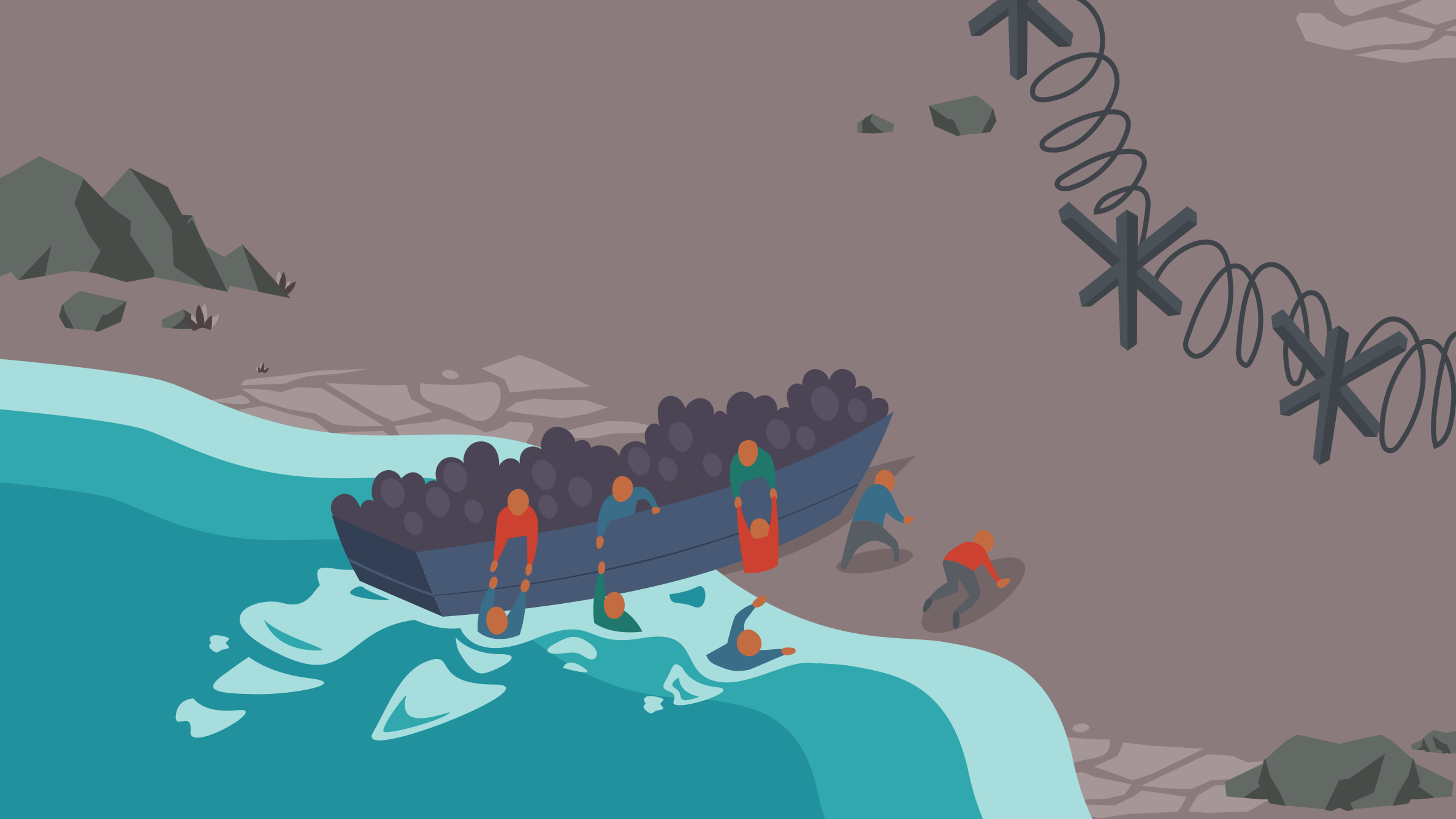In today's Finshots we talk about the horrors of human smuggling and the economic incentives that aid it
Also, tax season is just round the corner. And if you need good insurance advice, you know who to call, right?
Ditto - Talk to us
Alright, on with the story now.
The Story
Imagine a country that’s reeling from an economic crisis — Inflation through the roof, food and medicine in short supply, fuel pumps running on fumes, unemployment levels skyrocketing, and a grim future. Your only hope is to jump ship and move elsewhere. However, doing so is no walk in the park. And you may not have the money, resources or the qualifications needed to make the switch — at least not in a legitimate manner.
So what do you do if you find yourself in such a spot?
Well if desperation kicks in, maybe you’ll try to move anyway without the legitimate paperwork. You’ll seek out individuals who will smuggle you to a different place. You’ll even pay them for their troubles.
And this is exactly what’s happening in Sri Lanka today. The country is in deep distress (something that we’ve written about here) and people are running out of food, fuel and electricity. Their only option is to move out of the country and they’re doing whatever it takes. Just last week, 16 Sri Lankans were caught trying to make their way into India. They said they paid around ₹50,000 to the boatman to smuggle them across the sea.
And look, this isn’t the first time it’s happening. When the body of a three-year-old Syrian boy washed up on the Mediterranean sea, it created headlines all over the world. The boy and his family were fleeing Syria and hoping to make their way into Greece illegally. However, as they made this arduous journey across the sea, the boat capsized and killed several people. This incident threw the spotlight on the horrors of human smuggling — a practice where people pay intermediaries to smuggle them across borders illegally.
And it also threw the spotlight on the smugglers themselves, including the thriving business enterprise and the ridiculous money they make in the process. A report by the Financial Action Task Force (FATF) released last week pegged that human smugglers make a staggering $10 billion a year. For context, that’s what Coca-Cola makes in a year by selling its fizzy drinks. It’s a lot of money!
And we know you’re probably thinking that these examples don’t compare. But they do. Human Smuggling may be an unorganized enterprise. But it’s an enterprise nonetheless. For instance, consider cost-cutting — an essential feature of most businesses. In 2013, Italy launched a humanitarian operation to rescue migrants trying to escape Africa. The idea was to save lives in the event of a catastrophe. However, smugglers saw an opportunity. They realised that they no longer needed to take migrants all the way to the shore. They just had to get them close to the shore for the Italian coastguard to take over. They also downsized from larger boats to small rubber inflatables and overloaded it with even more people. They did this because “international conventions consider these boats in distress from the moment they launch, making preventive search and rescue operations an imperative.”
With this cost-cutting operation, they made even more money. The outcome for migrants meanwhile was dire — 950 people died that year trying to cross the seas compared to 50 who died in the previous year. In other settings, this would have curtailed demand. However human smuggling isn’t like any other endeavour. People are fleeing from the horrors of war and they’ll do anything to cross over, even if it means the odds of death rise exponentially.
And it’s not just about the smugglers.
They also facilitate offshoots.
For instance, terrorist outfits often control routes migrants may use to escape. So, in many regions like Africa, smugglers have to pay these outfits to guarantee safe passage. And we don’t need to tell you how that affects matters.
Elsewhere, the incentives trickle down to entire economies too. For instance, many regions that serve as transit points host impoverished communities. So in some ways, they’ve become dependent on the smugglers to earn a better livelihood. Like drivers who earn a decent sum of money ferrying people across the treacherous regions between Libya and Niger. Or the police force that makes some extra money on the side.
In fact, lawmakers worry that a complete crackdown on transit points may wipe out the economic benefits that trickle down to these regions, leading to more violent crimes and unrest. And they too have little incentive to effectively curb the illicit practice.
Bottom line — You’re probably going to hear a lot more about human smuggling in the days to come, especially with the turmoil brewing in Sri Lanka, and hopefully you’ll know why it’s so hard to prevent this altogether.
Until then...
Don't forget to share this article on WhatsApp, LinkedIn and Twitter
